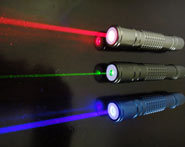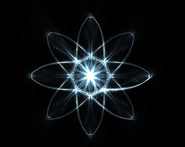


 الفيزياء الكلاسيكية
الفيزياء الكلاسيكية
 الكهربائية والمغناطيسية
الكهربائية والمغناطيسية
 علم البصريات
علم البصريات
 الفيزياء الحديثة
الفيزياء الحديثة
 النظرية النسبية
النظرية النسبية
 الفيزياء النووية
الفيزياء النووية
 فيزياء الحالة الصلبة
فيزياء الحالة الصلبة
 الليزر
الليزر
 علم الفلك
علم الفلك
 المجموعة الشمسية
المجموعة الشمسية
 الطاقة البديلة
الطاقة البديلة
 الفيزياء والعلوم الأخرى
الفيزياء والعلوم الأخرى
 مواضيع عامة في الفيزياء
مواضيع عامة في الفيزياء|
Read More
Date: 11-4-2021
Date: 9-4-2021
Date: 3-4-2021
|
Nonelectrical energy
In electricity and electronics, there are many kinds of phenomena that involve other forms of energy besides electrical energy. Visible light is an example. A light bulb converts electricity into radiant energy that you can see. This was one of the major motivations for people like Thomas Edison to work with electricity. Visible light can also be converted into electric current or voltage. A photovoltaic cell does this.
Light bulbs always give off some heat, as well as visible light. Incandescent lamps actually give off more energy as heat than as light. And you are certainly acquainted with electric heaters, designed for the purpose of changing electricity into heat energy. This “heat” is actually a form of radiant energy called infrared. It is similar to visible light, except that the waves are longer and you can’t see them. Electricity can be converted into other radiant-energy forms, such as radio waves, ultraviolet, and X rays. This is done by things like radio transmitters, sunlamps, and X-ray tubes.
Fast-moving protons, neutrons, electrons, and atomic nuclei are an important form of energy, especially in deep space where they are known as cosmic radiation. The energy from these particles is sometimes sufficient to split atoms apart. This effect makes it possible to build an atomic reactor whose energy can be used to generate electricity. Unfortunately, this form of energy, called nuclear energy, creates dangerous byproducts that are hard to dispose of.
When a conductor is moved in a magnetic field, electric current flows in that conductor. In this way, mechanical energy is converted into electricity. This is how a generator works. Generators can also work backwards. Then you have a motor that changes electricity into useful mechanical energy.
A magnetic field contains energy of a unique kind. The science of magnetism is closely related to electricity. Magnetic phenomena are of great significance in electronics.
The oldest and most universal source of magnetism is the flux field surrounding the earth, caused by alignment of iron atoms in the core of the planet. A changing magnetic field creates a fluctuating electric field, and a fluctuating electric field produces a changing magnetic field. This phenomenon, called electromagnetism, makes it possible to send radio signals over long distances. The electric and magnetic fields keep producing one another over and over again through space. Chemical energy is converted into electricity in all dry cells, wet cells, and batteries. Your car battery is an excellent example. The acid reacts with the metal electrodes to generate an electromotive force. When the two poles of the batteries are connected, current results. The chemical reaction continues, keeping the current going for awhile. But the battery can only store a certain amount of chemical energy.
Then it “runs out of juice,” and the supply of chemical energy must be restored by charging. Some cells and batteries, such as lead-acid car batteries, can be recharged by driving current through them, and others, such as most flashlight and transistor-radio batteries, cannot.



|
|
|
|
حقن الذهب في العين.. تقنية جديدة للحفاظ على البصر ؟!
|
|
|
|
|
|
|
علي بابا تطلق نماذج "Qwen" الجديدة في أحدث اختراق صيني لمجال الذكاء الاصطناعي مفتوح المصدر
|
|
|
|
|
|
|
مشاتل الكفيل تنتج أنواعًا مختلفة من النباتات المحلية والمستوردة وتواصل دعمها للمجتمع
|
|
|